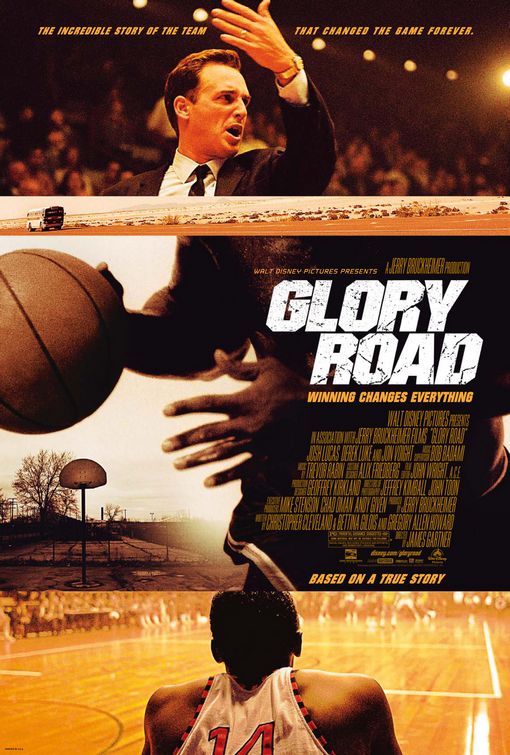The Passions of Ayn Rand & Donald Trump
By Gary Moore
Founder, The Financial Seminary
Christianity Today recently published an article that discussed the “significant support among self-identified ‘evangelical voters’ for Donald Trump and what this means, not for the country but what it suggests about significant segments of the US church.” The article somewhat reflected the puzzlement of nationally syndicated columnist Charles Krauthammer who recently wrote: “A more scripturally, spiritually flawed man than Trump would be hard to find.”
Anyone who’s seen the semi-pornographic movie The Passion of Ayn Rand would understand. So will millions of other Americans if her disciples in Hollywood are successful in producing planned movies about her life and ideas. That could be a case of God working in strange ways. For during the past twenty years, I’ve repeatedly lamented how many evangelical Christians have unwittingly mixed Christianity with the atheistic philosopher’s libertarian worldview, a process theologians call syncretism, to create a barely recognizable form of Christianity. You might particularly read Chapter Nine of my book Ten Golden Rules for Financial Success (Zondervan 1996) and Ayn Rand: Goddess of the Market (Christianity Today, September 2010 at www.financialseminary.org.
Such syncretism is quite evident in our political sphere today. And it might be the single greatest threat to our children’s futures, and particularly to the future of the Christian faith. The biblical prophets probably railed about syncretism more than atheism. For it creates so far more internal tension and self-deception, often causing us to profess one thing while doing another. That often leads to angry political confusion. And if one politician in American history has been created in the image of Ayn Rand while professing Christianity, I believe it may be Donald Trump. Traditional Christianity taught most sins involved the abuse of money, sex and power. Rand essentially taught our post-Christian and syncretized world, through her books and life, that excesses in all three areas are virtues. One of her books was even entitled The Virtue of Selfishness.
Rand’s opus was entitled Atlas Shrugged. It has been judged by the Library of Congress as the second most influential book in America after the Bible. Yet they taught diametrically opposed worldviews, perhaps providing a metaphor for modern America. The final sentence of the book has her humanistic savior create a new symbol over the world that was to replace the Cross, Star of David, Hammer and Sickle and so on. It was the dollar sign. For Rand taught the moral purpose of our lives is to make money. She called her savior John Galt, or J.G. rather than J.C. While Marx’s humanistic utopia was managed by politicians, Rand hated government nearly as much as Christianity, which tells us to honor and respect government as it was instituted by God (Romans 13). So Galt was a wealthy businessman who detested regulation and regulators, believing he would make the trains run on time all by himself, a fantasy Mussolini subscribed to. Sound familiar?
Rand’s worldview was quite elitist, somewhat in the willful mold of Nietzsche, who also influenced Hitler and others. Her noted critic Whittaker Chambers famously said that when he read her fiction, the words “to a gas chamber go” came to mind. Her disciples, which included Alan Greenspan, have long fantasized about establishing a country where everyone is just like themselves. In the book, they retreated to an area called Galt’s Gulch, which sounds remarkably like one of the buildings bearing the Trump name. Rand was so authoritarian she harshly excommunicated any disciple who dared disagree with her fantasies. Similarly, columnist Michael Gerson recently wrote of Mr. Trump: “His answer to nearly every problem is himself–his negotiating skill, his strength of purpose, his unique grasp of the national will. But this is more ‘will to power’ than separation of powers; more Nietzsche than Madison.”
Like most authoritarian personalities, Rand’s fantasies extended to the sexual sphere. Her fiction includes graphic rape scenes, which the women seem to welcome. With the full knowledge of her husband, she famously had a passionate and long-time affair with a disciple half her age, which is a major subject of the movie. Ironically, she very harshly excommunicated him from her cult when he had an affair with another woman. Such was the soap opera nature of her life. Similarly, Mr. Trump’s first marriage reportedly ended when he was caught having an affair with Marla Maples, who he eventually married and also divorced. His current wife has famously bared it all for a cover of GQ magazine. It hardly depicts what most of us visualize as a First Lady and suggests a Trump White House might not be the most effective advocate for morality in media.
Rand may have worshipped capitalism and hated government but she reportedly kept all her money in a government-guaranteed bank account, indicating that when one worships money, most any belief can be pragmatically subordinated to getting more. Similarly, it’s been widely reported that Mr. Trump has taken advantage of our nation’s bankruptcy code four times, even describing at least one as a great business deal for himself. It’s also widely reported that despite Mr. Trump’s acerbic disdain for public servants, he frequently threatens to use our nation’s courts whenever he feels it’s in his interests. What is less known is that Mr. Trump’s casinos may have set the tone for corporate America exaggerating results for shareholders, a major problem according to Warren Buffett (see https://fortune.com/?p=1586510).
None of this should surprise anyone who’s read Mr. Trump’s best-selling book The Art of the Deal, in which he confessed: “I play to people’s fantasies. I call it truthful hyperbole. It’s an innocent form of exaggeration–and a very effective form of communication.” I doubt those who loaned money to Mr. Trump thought his “truthful hyperbole” and “exaggeration” were all that innocent. But Ayn Rand couldn’t have described her fantasies and fiction any better. And The Economist has suggested Reaganomics was built on Rand’s philosophies. So for thirty years, many conservative Christian economists have agreed GOP politicians have greatly exaggerated the federal debt, essentially convincing voters of the fantasy that America is poor, as Mr. Trump recently told the Washington Post. That always suggests we need greater growth, supposedly enabled by tax cuts for the wealthy who own America’s assets, which Mr. Trump has dutifully promised. Despite the old saying, “Fool me once, shame on you; fool me twice shame on me,” those economic fantasies still appeal to Americans, both Christian and non-Christian, who are searching for a human savior who might lead us to the truth.
Yet Nobel economist Paul Krugman has just written: “The Republican elite can’t handle the truth. It’s too committed to an Ayn Rand storyline…” While I don’t always agree with Dr. Krugman, even Mr. Trump should agree he has a point about this. When Mr. Trump was a businessman catering to the wealthy, he hosted a special for the Discovery Channel in which he estimated America’s net wealth, after all debts are paid to foreign entities, as being $280 trillion. Most observers believe that may exaggerate our actual net wealth around double. The administration of President “W” estimated it was around $110 trillion. Still, that sounds pretty “great” to me. But Mr. Trump’s exaggeration is understandable. Observers like Forbes, The Economist and Bloomberg estimate he also exaggerates his own net worth about the same amount. But it’s hardly innocent. For now that he’s a politician pandering to the fears of disenfranchised Americans, he claims America is poor.
Ms. Rand couldn’t have conjured a more hyperbolic and exaggerated fantasy. As I’m still not convinced that selfishness is a virtue, I expect future books and movies will tell us such fantasies were more effective forms of communication for Mr. Trump than for our country, children and faith.
***
Editor’s note: Gary Moore has a degree in political science and forty years of Wall Street experience. He has authored several books on Judeo-Christian approaches to political-economy. For more information: FinancialSeminary.org
Questions or comments? Please write to us here.


 - Content:
- Content: 

